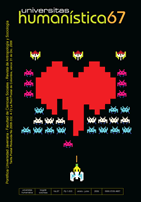Abstract
This paper unfolds theoretical approaches representative in the debate on the concept of popular culture. They are analysed in their relationship to mass culture and consumption. This is a theoretical-conceptual review split in four sections: the hypothesis of “cultural circularity” according to gramsci, ginzburg, bakhtin and thompson; the concept of working class from Bordieu’s theory of reproduction and stuart hall’s theory of a cultural dialectics; the relationship mass culture and cultural industry, according to eco, hoggard and sarlo, and the problem of production and consumption with de certeau. Finally, the distinction between high art and mass culture (huyssen), the concept of hybridation and the relationship between popular culture and new cultural technologies (garcía) is presented. The main contribution is the elucidation of relationships between popular culture, urban culture and mass culture, as well as the acknowledgement of several epistemological problems linked to generalizations in the use of these concepts
This journal provides immediate open access to its content on the principle that making research freely available to the public, encourages greater global exchange of knowledge.
The journal Universitas Humanística is registered under a Creative Commons Attribution 4.0 International Public License. Thus, this work may be reproduced, distributed, and publicly shared in digital format, as long as the names of the authors and Pontificia Universidad Javeriana are acknowledged. Others are allowed to quote, adapt, transform, auto-archive, republish, and create based on this material, for any purpose (even commercial ones), provided the authorship is duly acknowledged, a link to the original work is provided, and it is specified if changes have been made. Pontificia Universidad Javeriana does not hold the rights of published works and the authors are solely responsible for the contents of their works; they keep the moral, intellectual, privacy, and publicity rights.
Approving the intervention of the work (review, copy-editing, translation, layout) and the following outreach, are granted through an use license and not through an assignment of rights. This means the journal and Pontificia Universidad Javeriana cannot be held responsible for any ethical malpractice by the authors. As a consequence of the protection granted by the use license, the journal is not required to publish recantations or modify information already published, unless the errata stems from the editorial management process. Publishing contents in this journal does not generate royalties for contributors.


